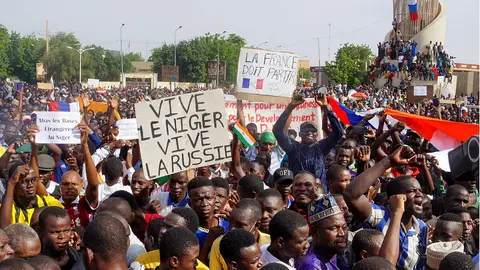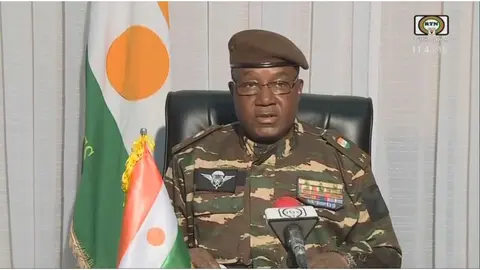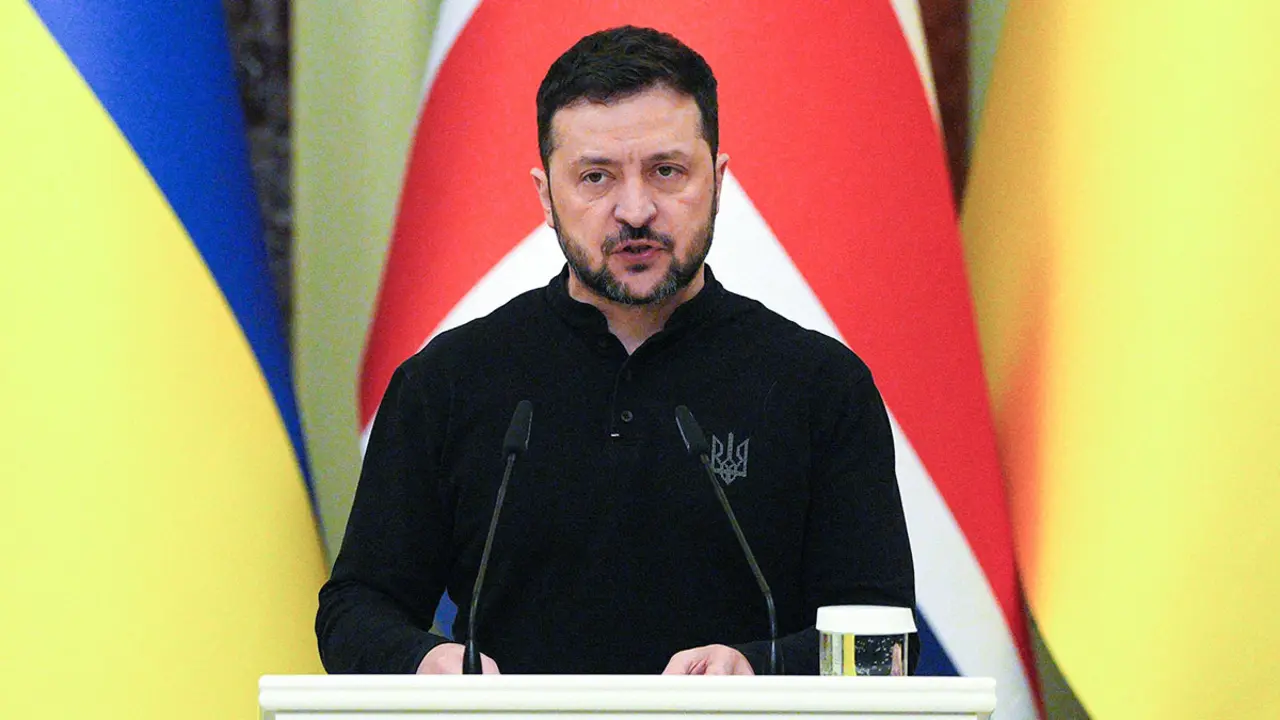Africa's military regimes come to the defence of Niger's coup plotters and tensions rise

The military regimes in power in Africa reject any foreign interference and show solidarity among themselves to prevent the fall of any of them from provoking a negative dynamic that would dislodge them from power, as several analysts point out.
In this context, the military juntas in charge of Burkina Faso and Mali showed their support for their counterparts in Niger, who feel threatened by external interference after Wednesday's coup d'état. The Burkinabe and Malian regimes issued a joint communiqué stating their firm position and rejecting any external interference in Niger. This situation and the warning against any intervention by force raise the tone of the political challenge in Africa and in the Sahel region in particular, which is plagued by intense activity by criminal and terrorist groups.

In this vein, the authorities in Ouagadougou and Bamako, which also came to power through two coups d'état as in Niger, warned that any military intervention in Niger to restore elected President Mohammed Bazoum to power would be tantamount to "a declaration of war on Burkina Faso and Mali". This declaration represents a major escalation of tension in the region.
Especially after the ruling military junta in Niger denounced that France could prepare a military intervention, which was dismissed by the French administration.
They stressed that "any military intervention against Niger will lead to the withdrawal of Burkina Faso and Mali from the Economic Community of West African States (ECOWAS) and the adoption of self-defence measures in support of the armed forces and the people of Niger". They also warned of "the catastrophic consequences of a military intervention in Niger that could destabilise the entire region".
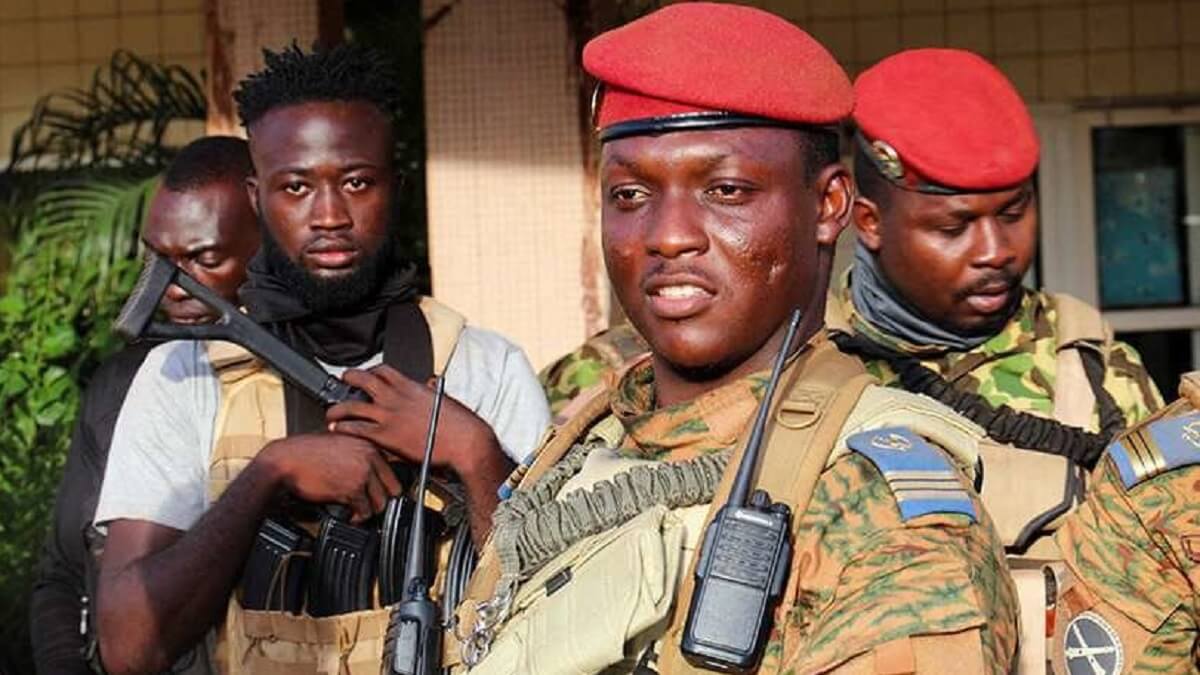
Following Wednesday's coup in Niger, ECOWAS imposed sanctions on the Niger and warned the coup leaders that they had seven days to reinstate Mohamed Bazoum as national president. ECOWAS and the West African Economic and Monetary Union (WAEMU) declared that borders with Niger would be closed, commercial flights banned, financial transactions paralysed, national assets frozen and aid withdrawn. In addition, it was noted that military personnel involved in the coup would be banned from travelling and their personal assets frozen.
From Mali and Burkina Faso there was a "refusal to implement" what is seen as "illegal and inhumane sanctions against the people and authorities of Niger", as reported by Al-Ain News.
Also, the Guinea Conakry authorities declared their "disapproval" of the sanctions imposed on Niger, including the feared external "military intervention". The Guinean government decided not to apply these sanctions, which it considers "illegal and inhumane", and Conakry urged ECOWAS to "reconsider its position".

France prepares evacuation arrangements for its nationals in Niger
The French Foreign Ministry confirmed that it is preparing an operation to evacuate between 500 and 600 French citizens in Niger due to the deterioration of the security situation since the coup d'état carried out by the self-styled National Council for the Safeguarding of the Homeland, the military junta that seized power after forcibly removing President Mohammed Bazoum.
France has many political and economic interests in Niger. It was the colonial power that dominated the country until the decolonisation process and has a strong cultural and political presence in the region, including a military presence that operates to maintain security in the country and in the Sahel region by acting against criminal and terrorist groups. On the other hand, France has many economic interests, especially in the uranium industry, one of the most important industries in Niger, along with agriculture.
The French Foreign Ministry indicated that the evacuation will take place quickly from Niamey, but without confirming the date.
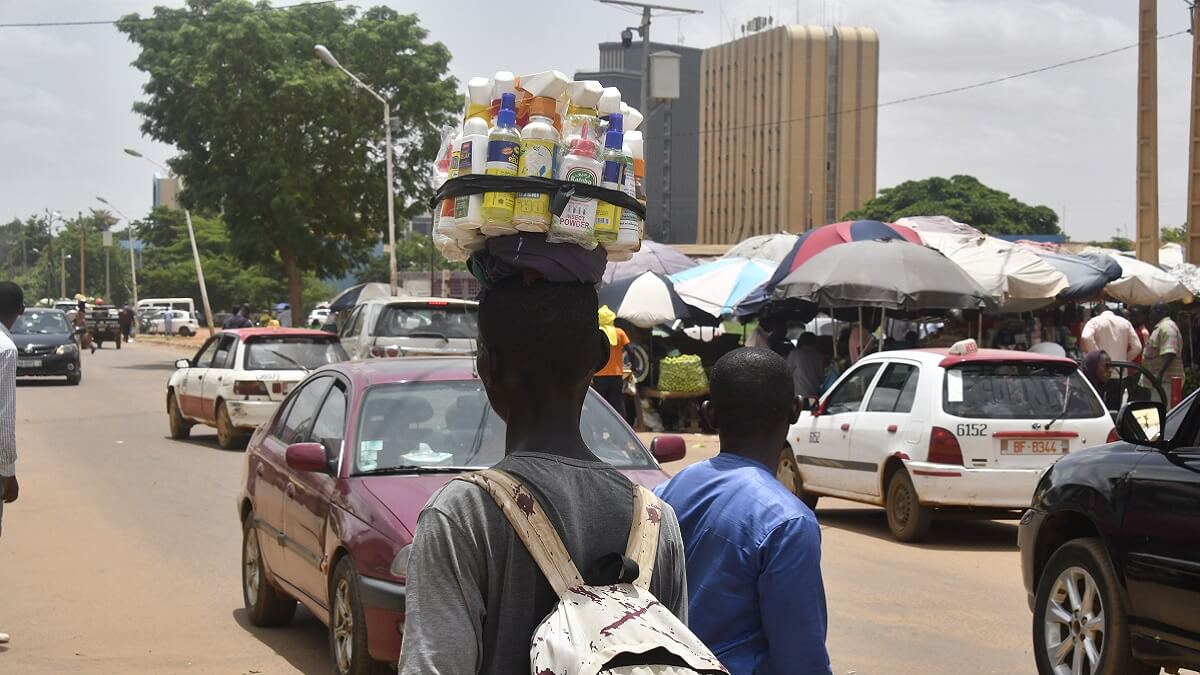
The French embassy in Niamey also sent a message to its citizens in Niger explaining that "with the deterioration of the security situation in Niamey and in view of the relative calm in the capital, an aerial evacuation operation from Niamey is being prepared and will take place very soon".
Catherine Colonna, the French Foreign Minister, in an interview, again called for the return of deposed President Mohammed Bazoum and denied accusations by the Nigerian military coup plotters that France was preparing a military intervention.
She also stressed that it is "possible" that Russia is trying to take "advantage" of the crisis, but avoided blaming Moscow for the coup and attributed it to "opportunistic action" by the military, as also reported by the EFE news agency.

